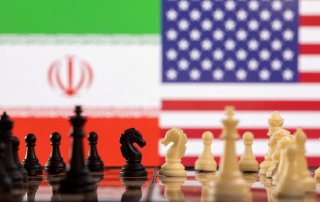Can America Prevent Iran from Going Nuclear?
If the United States does not address Iran’s concerns in order to achieve a negotiated settlement, then the world will have to live with Iran as a nuclear weapons power.
The U.S. government has abided with this deal ever since. Many have argued that this privileged status gives Israel’s leadership a sense of power over others as it can enjoy the benefits of becoming a nuclear weapons state without the responsibilities that come with it. But enabling this aberration to exist degrades America’s moral standing in the world. Further, there is broad international consensus that the opaqueness of Israel’s nuclear program is a critical hurdle in creating a nuclear-free zone in the Middle East, an aspiration that goes back to President George H.W. Bush. U.S. promotion of a nuclear-free zone in the Middle East would address Iran’s security concerns and encourage it to remain a part of the NPT regime, unlike Egypt, which withdrew from NPT in 1981 with the condition to rejoin the NPT only after Israel joins.
Iran, for its part, should agree to reverse all its recent progress toward building nuclear weapons, extend its current breakout time to the JCPOA standard of one year or more, and accept strict and verifiable international mechanisms to monitor its compliance.
Many Washington hardliners will smirk at these proposals as being too ambitious and unrealistic. However, given all the advances Iran has made so far on its nuclear program and the technical knowledge it has gained along the way, this situation is headed toward crisis at a blistering pace. If the United States does not address Iran’s concerns in order to achieve a negotiated settlement, then the world will have to live with Iran as a nuclear weapons power.
Sumesh Shiwakoty is a policy analyst and commentator. His analyses have appeared in publications including The Diplomat, Asia Times, and The Times of India. He has previously worked with the World Policy Institute in New York and has received a research grant from the Andrew W. Mellon Foundation. He currently serves as a board member and South Asia director for the California-based U.S. Department of State-funded non-profit, United by Love.
Image: Reuters.

